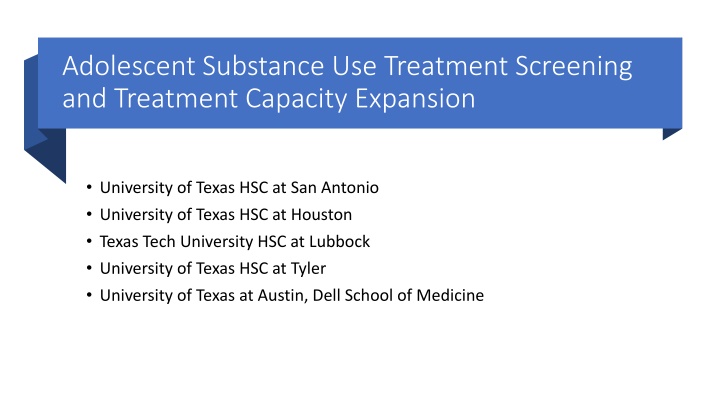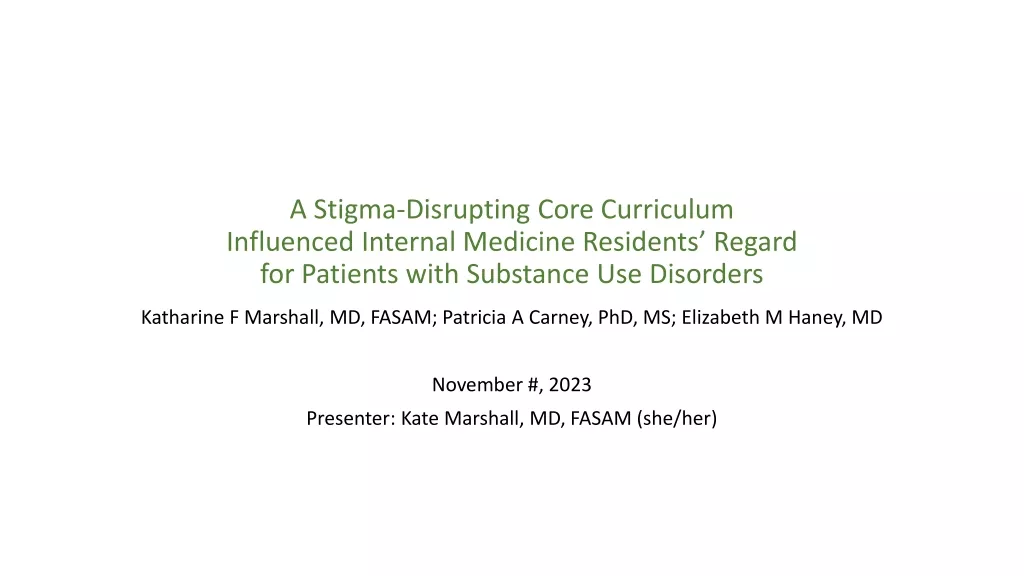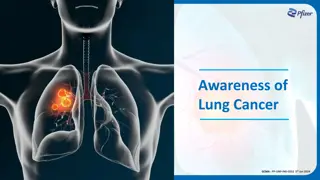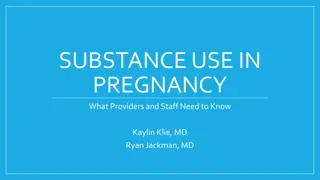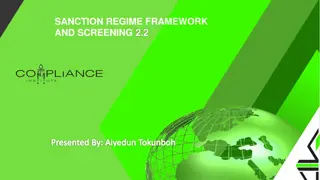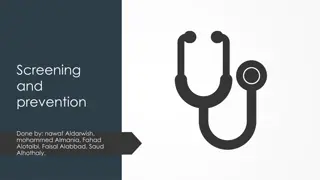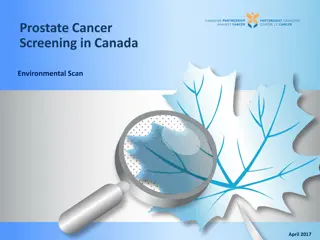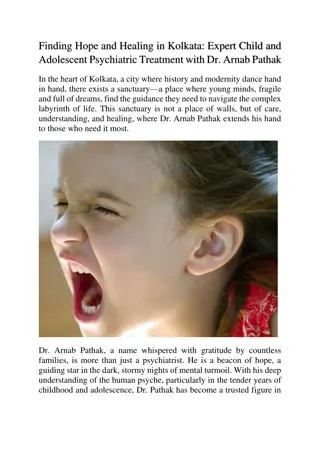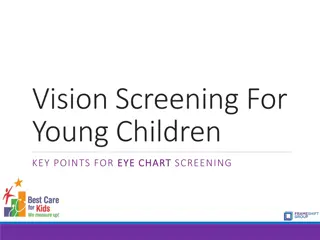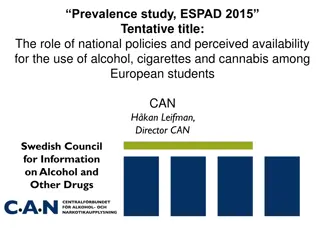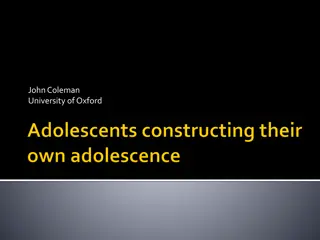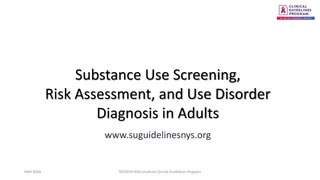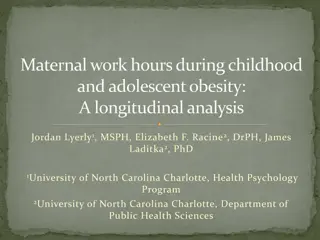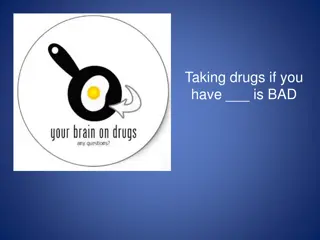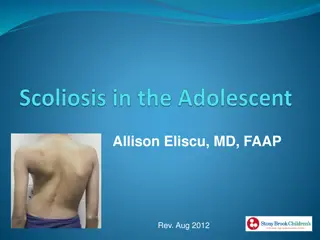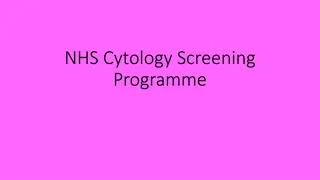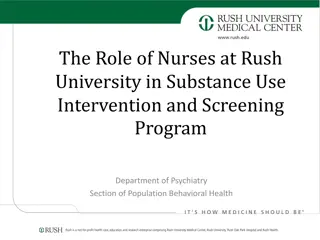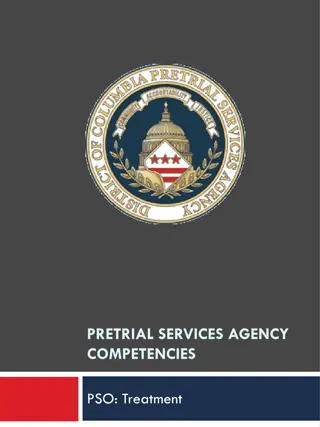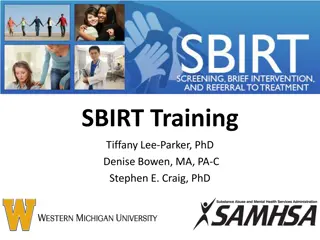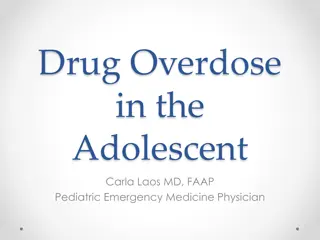Adolescent Substance Use Treatment and Screening Programs in Texas
Expansion of adolescent substance use treatment and screening programs across different University of Texas Health Science Centers in Texas, focusing on implementing systematic screening, evidence-based interventions, and referral pathways for youth with substance use disorders. The initiative aims to bridge the gap between SUD prevalence and treatment by incorporating SBIRT models, cognitive-behavioral interventions, family-based contingency management, and community outreach strategies.
Download Presentation

Please find below an Image/Link to download the presentation.
The content on the website is provided AS IS for your information and personal use only. It may not be sold, licensed, or shared on other websites without obtaining consent from the author.If you encounter any issues during the download, it is possible that the publisher has removed the file from their server.
You are allowed to download the files provided on this website for personal or commercial use, subject to the condition that they are used lawfully. All files are the property of their respective owners.
The content on the website is provided AS IS for your information and personal use only. It may not be sold, licensed, or shared on other websites without obtaining consent from the author.
E N D
Presentation Transcript
Adolescent Substance Use Treatment Screening and Treatment Capacity Expansion University of Texas HSC at San Antonio University of Texas HSC at Houston Texas Tech University HSC at Lubbock University of Texas HSC at Tyler University of Texas at Austin, Dell School of Medicine
Youth SUD: Prevalent, Pernicious & Persistent
Strong relationship to MH disorders
Strong relationship to MH disorders
Only a fraction of those with SUD get treatment (at all ages)
Aims Aims Implement systematic screening and matching need to intervention. Screening, Brief Intervention, and Treatment Model (SBIRT) Initial focus on TCHATT. Cultivate and deploy evidence-based interventions to A-SUD Brief Intervention, Motivational Enhancement Family-based contingency mgt; CBT; pharmacotherapy as appropriate Relapse prevention and monitoring Community outreach for education and training Diverse target audience
Referral Pathways - tentative TCHATT and schools Other community health providers Family or youth self-referrals Target Patient Group for SUD Specialty Treatment Youth 13 to 18 Use of ETOH/substances screens in the Treatment range or Very high-risk use (based on substance, settings for use, other factors)
Cognitive-Behavioral Motivational Enhancement / Motivational Interviewing Drug/ETOH refusal skills Target factors that precipitate substance involvement Establishing alternate leisure activities and peers Validated psychotherapies for mood and anxiety disturbances. Specialty Competencies to Develop or Family-Based Contingency management (adolescent version) Improved monitoring and supervision; cohesion and conflict reduction. Facilitating alternate leisure activities and peers. Risk reduction, restricting access Facilitate substance-related tx for other family members, as indicated. Refine Other or Under Consideration by Site Pharmacotherapy. U/A, PEtH, etc. Peer guidance. MAT.
Linkages to Related Programs & Organizations Including HHSC Association of Substance Abuse Providers Be Well Texas Juvenile/Family Court
Timeline Draft
